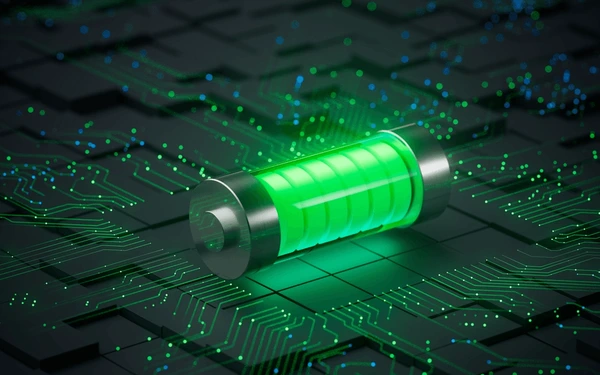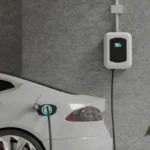One of the biggest concerns for electric vehicle owners is — how long will the EV battery last? Just like your smartphone, your EV’s performance and range depend heavily on how well you maintain its battery. This guide on EV battery life simplifies the science behind battery health and offers practical tips to extend your EV’s lifespan. Whether you drive daily or occasionally, understanding these insights will help you protect your investment, save money, and enjoy your EV for years to come.
Understanding EV Battery Life
EV battery life is measured not in years but in charge cycles — the number of times the battery is charged and discharged. Most EVs today use lithium-ion batteries, known for their durability and efficiency. On average, EV batteries last between 8–10 years or 1.5 lakh to 2 lakh kilometers before any significant degradation occurs. However, factors like driving habits, charging patterns, and temperature exposure play a big role in determining actual performance.
How EV Batteries Work
Each EV battery contains thousands of small cells that store and release energy to power the motor. Over time, chemical reactions inside the cells cause slight degradation, reducing total capacity. However, modern EVs feature Battery Management Systems (BMS) that regulate temperature, prevent overcharging, and balance energy distribution — ensuring longer battery life and stable performance.
Factors That Affect EV Battery Lifespan
Several factors can influence how long your electric vehicle battery lifespan remains optimal.
Charging Behavior
Frequent fast charging can heat up your battery, which slightly reduces its lifespan over time. Instead, it’s ideal to use slow or Level 2 chargers for regular charging and reserve fast charging for emergencies.
Driving Habits
Aggressive acceleration, high-speed driving, and frequent braking can stress your battery. Smooth driving ensures consistent energy use and prevents unnecessary thermal load on the cells.
Temperature and Climate
Extreme temperatures, whether hot or cold, affect battery chemistry. If you live in regions like Delhi or Chennai, try to park your EV in shaded areas or garages. Similarly, preconditioning your EV in winter can reduce strain during cold starts.
Best Practices to Improve EV Battery Life
To extend EV battery life, following some simple maintenance habits can make a huge difference.
Avoid Full and Empty Charges
Try not to charge your EV battery to 100% regularly or let it drop below 10%. Keeping it between 20%–80% is the sweet spot for long-term health. Many EVs now offer “Battery Care Mode” that automatically limits charge capacity to extend lifespan.
Regular Software Updates
Automakers like Tata, MG, and Hyundai frequently roll out battery optimization updates. Keeping your vehicle’s software up-to-date ensures better temperature management, charging control, and longer battery performance.
Charging Habits That Matter
Charging may look effortless, but it plays a crucial role in your EV battery life. Consistent charging patterns can significantly extend the lifespan of your electric vehicle’s battery. Charging too often or using high-voltage chargers unnecessarily can strain the cells. Developing good charging habits not only protects battery health but also ensures better range and performance over time.
Optimal Charging Schedule
For the best electric vehicle battery lifespan, charge your EV during cooler hours—early mornings or late evenings. Avoid plugging in right after long drives when the battery is still hot. Letting it cool for 30–40 minutes helps prevent thermal stress. Consistent temperature management during charging enhances efficiency and keeps your battery healthy for years.
Use Manufacturer-Approved Chargers
Always charge your EV using manufacturer-approved or BIS-certified chargers to avoid voltage inconsistencies. Uncertified or cheap chargers can cause long-term damage, reduce charging efficiency, and affect your EV battery life. OEM chargers are designed to deliver optimal power flow while ensuring safety standards, helping maintain the right energy balance across all cells for extended battery performance.
EV Battery Maintenance Tips
Maintaining your EV battery life goes beyond just charging correctly—it’s about smart daily usage. Simple habits like parking in shade, driving smoothly, and avoiding overcharging can make a huge difference. A well-maintained battery ensures consistent range and reliable performance while reducing the risk of premature degradation, saving you money and maintaining resale value.
Keep the Battery Cool
Heat is one of the biggest enemies of EV battery health. Try to park your car in shaded areas or use covered parking whenever possible. If your vehicle has an active thermal management system, ensure it’s working efficiently. Keeping your battery cool helps maintain cell stability, prevents degradation, and extends your EV’s overall performance and longevity.
Regular Checkups
To preserve your EV battery life, schedule regular health checks at authorized service centers. Professionals can analyze the State of Health (SoH) report, which measures how much battery capacity remains compared to when it was new. Detecting early signs of degradation allows timely intervention, ensuring reliable performance and avoiding costly replacements down the road.
Signs Your EV Battery Needs Attention
Like any other vehicle component, your EV battery gives warning signs before major issues arise. Pay attention to any changes in performance, charging time, or temperature. Identifying these early helps prevent serious damage. Being proactive ensures that your electric vehicle battery lifespan remains long, safe, and efficient even after several years of usage.
Reduced Range
A sudden drop in driving range despite regular use can indicate potential battery degradation or imbalance between cells. This issue often arises when batteries age or face heat stress. Keeping track of your range and comparing it with original performance helps you detect early degradation and maintain your EV battery life effectively.
Slow Charging
If your EV suddenly takes longer to charge, it could be due to dirty charging ports, wiring issues, or early cell deterioration. Regularly clean your charging connectors and get your EV checked if the issue persists. Proper maintenance ensures optimal charging performance, extending your overall EV battery lifespan while preventing power loss or system faults.
Overheating
Frequent overheating, especially during normal drives, may suggest issues with the cooling system or battery pack.
How Manufacturers Ensure Battery Longevity
Automakers are constantly improving electric vehicle battery lifespan through advanced engineering and smarter software. Modern EVs now feature Battery Management Systems (BMS) that automatically balance energy flow, regulate temperature, and prevent overcharging. Combined with robust cooling technologies, these systems minimize stress on the battery, ensuring longer life and consistent performance across all driving conditions.
Battery Management System (BMS)
A Battery Management System is the brain behind every modern EV. It monitors voltage, temperature, and charge levels across individual cells to ensure safe operation. By preventing overcharging and deep discharging, the BMS protects against degradation. This smart system significantly improves EV battery health, giving drivers peace of mind and consistent reliability over years of ownership.
Thermal Control Systems
Thermal control systems in EVs, like those found in the Hyundai IONIQ 5 or Tata Nexon EV LR, play a vital role in maintaining temperature stability. By keeping the battery at an optimal temperature range, they reduce performance drops in extreme weather. This ensures better safety, longer range, and improved electric vehicle battery lifespan in Indian conditions.
Future of EV Batteries: What’s Next
The next generation of EV battery technology promises longer life, faster charging, and safer performance. As manufacturers invest in new chemistries like solid-state and sodium-ion, the focus is on durability and sustainability. These innovations will redefine how we power electric vehicles, making them more reliable and eco-friendly than ever before.
Solid-State Batteries
Solid-state batteries are set to revolutionize the EV industry. Unlike lithium-ion packs that use liquid electrolytes, these batteries use solid materials, which makes them safer and more energy-dense. They also offer 30–50% longer battery life, faster charging, and lower fire risk — making them a key step toward improving overall EV battery longevity.
LFP & Sodium-Ion Batteries
Automakers are increasingly adopting LFP (Lithium Iron Phosphate) and Sodium-Ion technologies for affordable EVs. These battery types provide better thermal resistance, lower manufacturing costs, and stable long-term performance. Especially for the Indian climate, LFP batteries offer durability and safety, ensuring a more dependable electric vehicle battery lifespan for everyday users.
Comparison Table: EV Battery Lifespan by Type
| Battery Type | Average Lifespan (Years) | Charging Cycles | Advantages |
|---|---|---|---|
| Lithium-Ion (NMC) | 8–10 | 1500–2000 | High performance, compact size |
| LFP (Lithium Iron Phosphate) | 10–12 | 2500–3000 | Safer, longer life, better heat resistance |
| Solid-State | 12–15 (expected) | 3000+ | High energy density, faster charging |
Challenges and Realities of EV Battery Longevity
While technology is evolving, challenges remain. Replacing EV batteries can still be expensive, ranging between ₹3–₹6 lakh depending on model. Battery recycling infrastructure in India is also developing slowly. Moreover, improper charging setups or low-quality power supply can reduce battery efficiency. However, with proper maintenance, most users report minimal degradation (5–10%) even after 5 years, proving that EVs are reliable long-term investments.
Strengths of Modern EV Battery Systems
Modern EVs are smarter than ever. With AI-based battery monitoring, regenerative braking, and thermal control, today’s EVs deliver consistent performance. Features like smart charging notifications, auto power cutoff, and battery health alerts empower owners to keep their vehicles in peak condition effortlessly. Together, these systems ensure reliability, safety, and maximum EV battery life.
Final Takeaway
Your EV’s battery is its beating heart — and with a little care, it can last longer than you expect. Follow the charging and maintenance practices outlined in this EV battery life guide, and you’ll enjoy optimal performance for years. As India’s EV revolution accelerates, understanding battery health isn’t just smart — it’s essential.
Stay powered up and explore more expert EV guides, comparisons, and reviews at EV Insights.
Latest Posts
- Top 5: 150 km Range Electric Scooters in India (2026): No More Range Anxiety!
- Best Electric Vehicles to Buy in India in 2026 (Updated List)
- India EV Market 2026 Could Reach $17 Billion: A Defining Moment for Electric Mobility
- Tata Motors’ ₹18,000 Crore EV Investment Signals a Major Industry Shift
- 10 BIG EV Discounts in December: Up to ₹4 Lakh Off on Affordable Electric Cars




Alright, listen up! jljl88club is where it’s at if you’re looking for a good time. They’ve got a decent selection of games and it’s pretty easy to navigate. Definitely worth a look. See for yourself: jljl88club
777pubcasino is becoming my new favorite. Good games and seems pretty legit. Give it a whirl! Here’s the link to get started: 777pubcasino
Alright, champs! Checked out mu88ai. Decent selection of games and the site’s fairly straightforward. Could be worth a look if you’re bored. Check it out here: mu88ai
For my Brazilian friends, 1bbetbr.com is pretty sweet. They have all the local sports and games I am into. I am hoping to win some serious dough! Check it out at 1bbetbr!
PKR47 seems decent enough. Poker’s always a fun gamble. Maybe I’ll win the jackpot this time haha. Take a look here: pkr47
S5 Casino’s giving out Free 100! Claimed mine, let’s see what happens eh! Always fun to play free game! Start for free!!! Check it: s5 casino free 100
S92betgame, listen, it’s legit! Was a bit skeptical at first, you know how it is, but this platform actually delivers. Games are fun and payouts are decent. Give it a whirl: s92betgame.